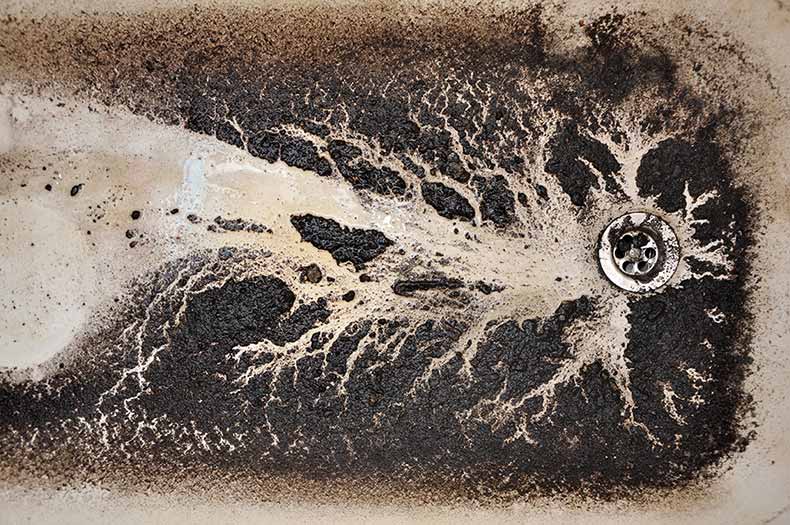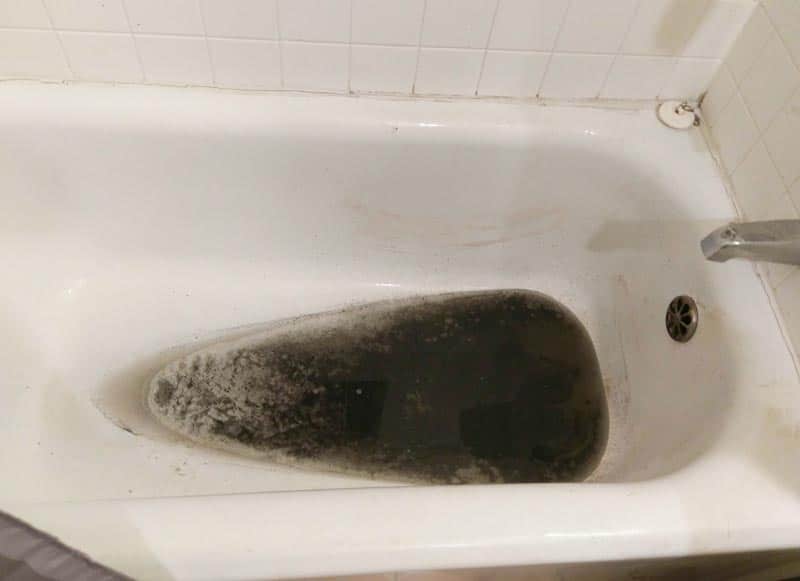This great article below involving Why is Sewage Backing Up Into My Bathtub? is totally interesting. Check it out for your own benefit and decide what you think about it.

Sewer backup in the bathtub can be a distressing and unsanitary trouble for any homeowner. Not just is it troublesome, however it additionally postures severe wellness risks and suggests underlying issues with the plumbing system. Understanding why sewage is turning up with the bath tub is critical for taking suitable activity to address the trouble properly.
Introduction to the Problem
Comprehending the Problem
When sewer draws back up into the tub, it's a clear sign of a trouble with the water drainage system. The wastewater that must be flowing far from your home is instead discovering its way back right into your space, which can bring about significant damages and health hazards.
Prospective Reasons
Several aspects can contribute to sewage back-up in the bath tub. From clogs in the drain line to concerns with the plumbing framework, identifying the source is necessary for discovering a remedy.
Typical Factors for Sewer Back-up
Clogs in the Sewage System Line
One of the most usual sources of sewer back-up is a blockage in the sewer line. This can take place as a result of the build-up of particles, grease, or international items in the pipelines, avoiding appropriate circulation and triggering sewer to back up into your tub.
Tree Origin Breach
Tree roots seeking moisture and nutrients can infiltrate sewer lines through small cracks or joints. In time, these roots can expand and broaden, causing significant damages to the pipes and leading to sewage backup concerns.
Aging Framework
Older homes may have obsoleted plumbing systems that are much more susceptible to corrosion, fractures, and damage. As pipes age, they end up being a lot more vulnerable to leaks and blockages, enhancing the possibility of sewage backup incidents.
Heavy Rainfall or Flooding
Throughout durations of heavy rainfall or flooding, the sewer system may end up being overwhelmed with excess water, triggering backups and overflows. This can lead to sewage backing up right into tubs and other fixtures inside the home.
Health And Wellness Risks Related To Sewage Back-up
Contamination of Water
Sewage back-up can infect the supply of water in your house, positioning a significant health danger to you and your family. Exposure to contaminated water can cause stomach issues, skin infections, and various other health problems.
Spread of Illness
Sewage has hazardous microorganisms, infections, and parasites that can cause a series of illness, consisting of liver disease, cholera, and gastroenteritis. Entering contact with sewage or polluted surfaces places you at risk of infection.
Mold and mildew Growth
Dampness from sewer back-up can produce excellent problems for mold development in your home. Mold spores can exacerbate respiratory system problems and create allergies in delicate individuals, making punctual cleanup important.
Indicators of Sewer Back-up
Foul Odors
Undesirable smells emanating from drains pipes or components, specifically in the shower room, may indicate sewer backup problems. These smells are usually strong and persistent, signaling a trouble that requires prompt attention.
Slow Draining Fixtures
Bathtubs, sinks, and commodes that drain pipes gradually or otherwise in any way could be experiencing sewer back-up. If multiple components are influenced all at once, it's most likely that the issue stems from a common factor, such as the main sewage system line.
Gurgling Noises
Unusual gurgling or bubbling noises originating from drains pipes when water is running somewhere else in your house are a sign of air caught in the plumbing system. This air buildup can result from sewage backup and should be checked out immediately.
Immediate Actions to Take
Turning Off Water Supply
In case of sewer backup, it's necessary to switch off the water supply to stop more contamination and damages. Situate the primary water shutoff valve in your home and closed it off up until the problem can be fixed.
Getting In Touch With a Professional Plumber
Managing sewer backup is not a DIY work. Get in touch with a licensed plumber with experience in taking care of sewage-related problems to analyze the circumstance and perform needed repairs or cleanups.
Staying Clear Of Contact with Contaminated Water
Till the sewer backup is dealt with, stay clear of contact with contaminated water to stop the spread of germs and microorganisms. Use protective gear if you need to remain in the affected area and clean your hands completely later.
Preventive Measures
Routine Maintenance of Sewer Lines
Set up routine assessments and maintenance of your sewage system lines to determine and address possible problems before they rise into major troubles. This can consist of cleaning out particles, checking for tree root breach, and repairing any kind of damaged pipelines.
Mounting Backwater Shutoffs
Think about setting up bayou valves in your plumbing system to avoid sewer from flowing back right into your home throughout periods of heavy rainfall or flooding. These shutoffs instantly close when water starts backing up, shielding your residential or commercial property from contamination.
Appropriate Disposal of House Waste
Avoid flushing anything aside from toilet paper and human waste down the toilet to prevent clogs and blockages in the drain line. Dispose of grease, oil, and various other family chemicals appropriately to lessen the danger of plumbing troubles.
Cleaning Up After Sewage Backup
Disinfection Procedures
Completely decontaminate and sterilize impacted areas after sewage backup to eliminate hazardous bacteria and protect against mold and mildew growth. Use appropriate cleansing items and protective gear to guarantee safe and reliable cleaning.
Repair of Impacted Locations
Fix any kind of damage to floor covering, wall surfaces, or components caused by sewer back-up. Depending upon the degree of the damages, you might require to change carpets, drywall, or other products to restore your home to its pre-loss condition.
Why Is Water Backing Up in My Bathtub When I Flush My Toilet?
What to do about a sewer line clog
First, don’t bother with plunging. No amount of plunging will dislodge the clog in a sewer line. The clog is too far away. Plungers are for clogs in the toilet itself, not the sewer line. Plus, the most likely causes of a sewer clog are:
Tree roots Flushed toys or feminine products Grease buildup Those items don’t move easily. And in the case of tree roots, the roots need to be cut out of the pipe and the pipe will need to be repaired.
You’ll need a closet auger. A closet auger is a type of plumber’s snake with a protective cover to keep from scratching the delicate porcelain toilet. If the clog is further down, you may need to remove the toilet or use one of your cleanouts to get to the clog.
We also recommend doing a video inspection of the drain to ensure that the cause of the clog has been completely removed. Otherwise, you could have the same problem again in a few days or weeks.
https://mspplumbingheatingair.com/blog/why-is-water-backing-up-in-my-bathtub-when-i-flush-my-toilet

We had been brought to that editorial about Why is Sewage Backing Up Into My Bathtub? through someone on a different web address. Liked our piece of writing? Please share it. Let someone else find it. We love reading our article about Water Coming up Bathtub Drain.
Prices & Booking